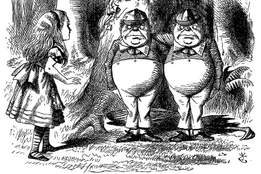often attributive
1
: a garment usually of cloth, plastic, or leather usually tied around the waist and used to protect clothing or adorn a costume
2
: something that suggests or resembles an apron in shape, position, or use: such as
a
: the lower member under the sill of the interior casing of a window
b
: an upward or downward vertical extension of a bathroom fixture (such as a sink or tub)
c
: an endless belt for carrying material
d
: an extensive fan-shaped deposit of detritus
e
: the part of the stage in front of the proscenium arch
f
: the area along the waterfront edge of a pier or wharf
g
: a shield (as of concrete or gravel) to protect against erosion (as of a waterway) by water
h
: the extensive paved part of an airport immediately adjacent to the terminal area or hangars
Love words? Need even more definitions?
Merriam-Webster unabridged










Share